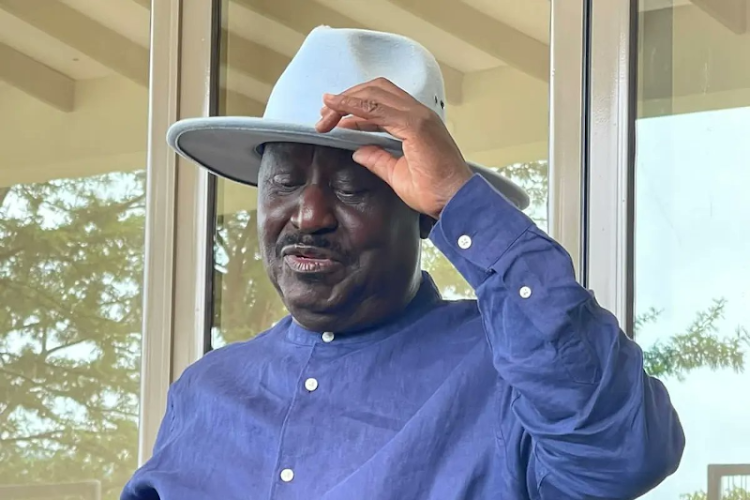- "The decision to form the Commission of Inquiry Into the Shakahola Tragedy is therefore a contravention of the Constitution of Kenya."
- "By accepting the appointment as Chairperson of an inferior Tribunal, Justice Lesiit will be placing herself, her authority and mandate under the supervision."
Azimio La Umoja leader Raila Odinga has taken the Shakahola deaths tragedy to the corridors of Justice.
In a 35-page document, Raila is suing President William Ruto over his decision to form the Commission of Inquiry into the deaths.
His lawyer Paul Mwangi has raised over five issues in which Raila claims Ruto undermined the authority of state agencies
"The decision to form the Commission of Inquiry into the Shakahola tragedy is, therefore, a contravention of the Constitution of Kenya."
Senate: Says the President is undermining the authority of the Senate considering that the Senate has already formed an ad-hoc Committee chaired by Senator Danson Mungatana whose mandates are of the same shade and colour as the purported Commission mandates.
Judiciary: The Azimio leader claims the President has undermined the authority of and the respect of the people of Kenya in the Judiciary and exposed the Judiciary to embarrassment by appointing Justice Lady Jessie Lesiit as chair of the commission.
"By accepting the appointment as Chairperson of an inferior Tribunal, Justice Jessie Lesiit will be placing herself and her authority and mandate under the supervision and jurisdiction of the High Court which is a lower court that the one she is constitutionally mandated to sit on."
National Police Service: Raila says Ruto usurps the investigation mandate of the NPS and undermines the command of the Inspector General of Police who is not only mandated to conduct investigations but is also required not to take any direction from anyone on who to investigate and even what to investigate.
Director of Public Prosecutions: The opposition leader says Ruto undermines the mandate of the DPP by allowing the inquiry to recommend to the President persons for prosecution while that recommendation for prosecution can only be done to the DPP and only by the Inspector General of Police.
The National Assembly: Raila says only Parliament can oversight the National Intelligence Service and inquire into the legal, administrative, security, and intelligence lapses that may have contributed to the occurrence of the Shakahola tragedy.
National Intelligence Service: The ODM leader says only the National Intelligence Service is responsible for security intelligence under article 242 (2) of the Constitution of Kenya 2010 hence the Commission of Inquiry is usurping the mandate of National Intelligence by seeking to investigate the intelligence lapses in the saga.
Independent Police Oversight Authority: The opposition leader claims that the formation of the COI usurps the powers and undermines the authority of Ipoa, whose role is to provide for civilian oversight over the work of the police in Kenya. By Manny Anyango, The Star






